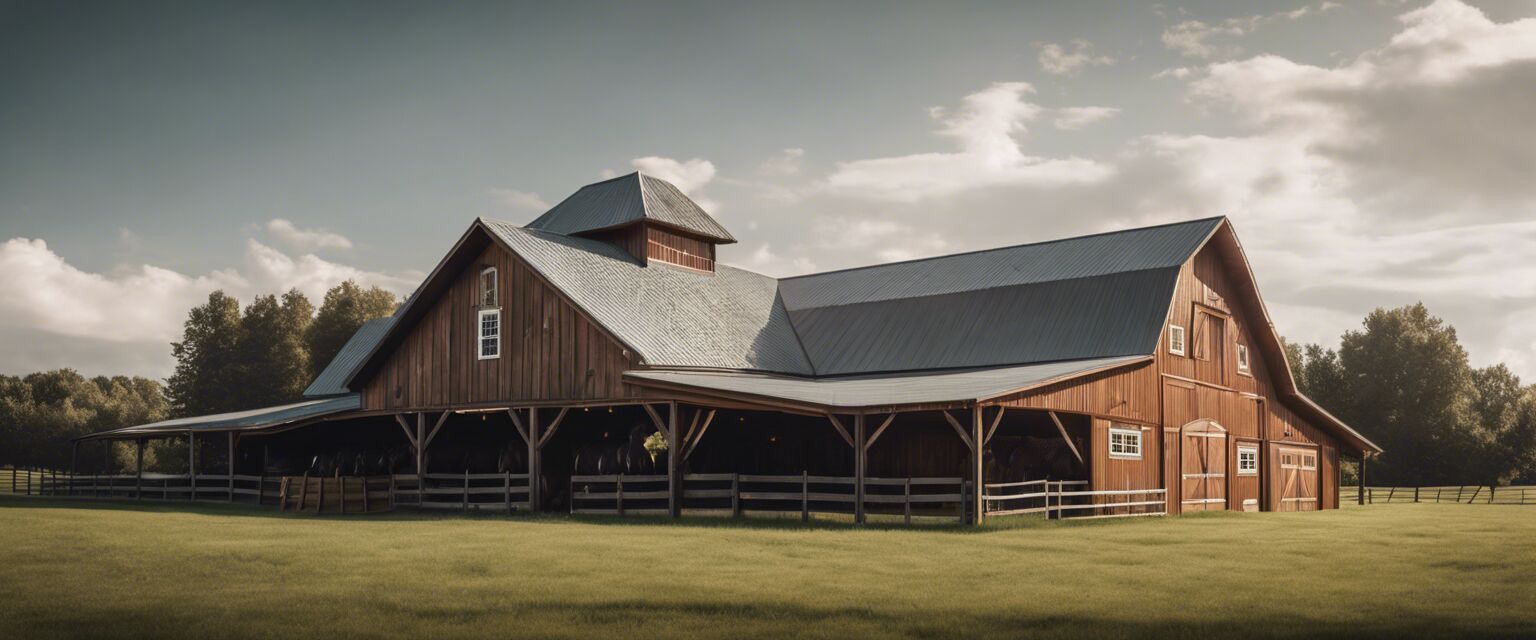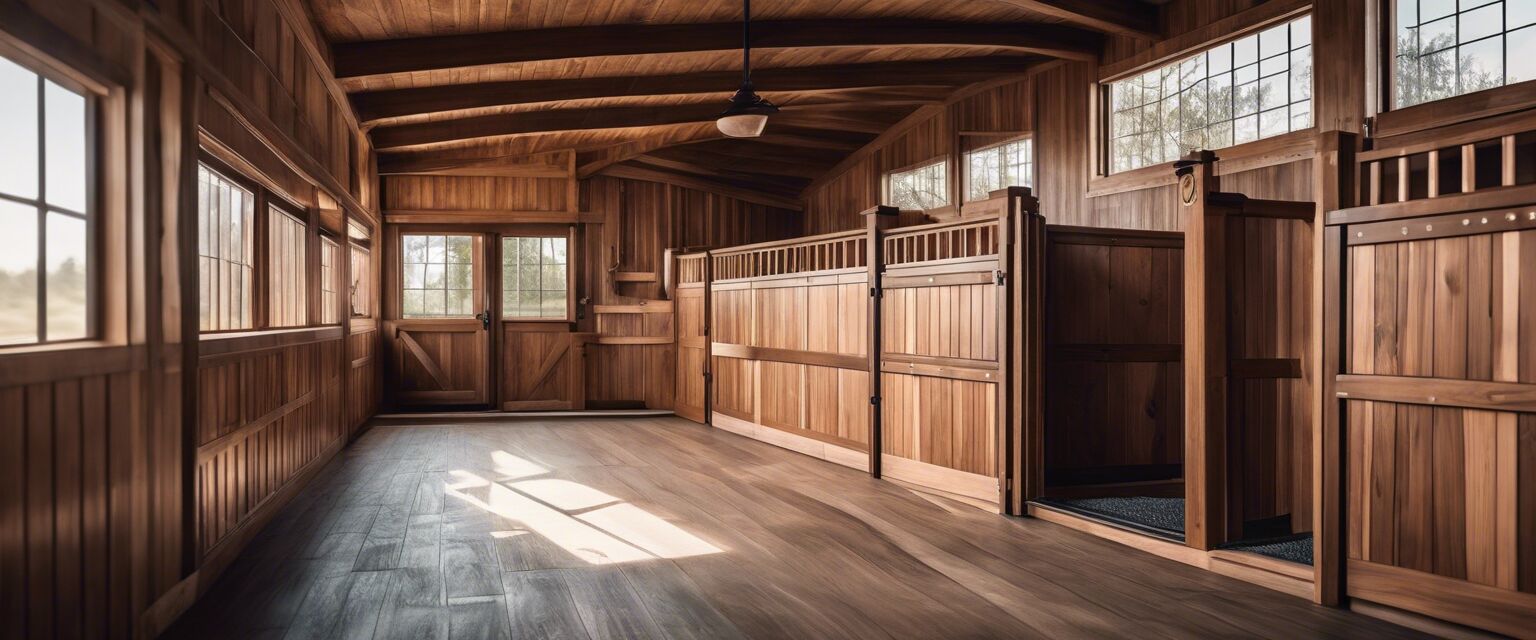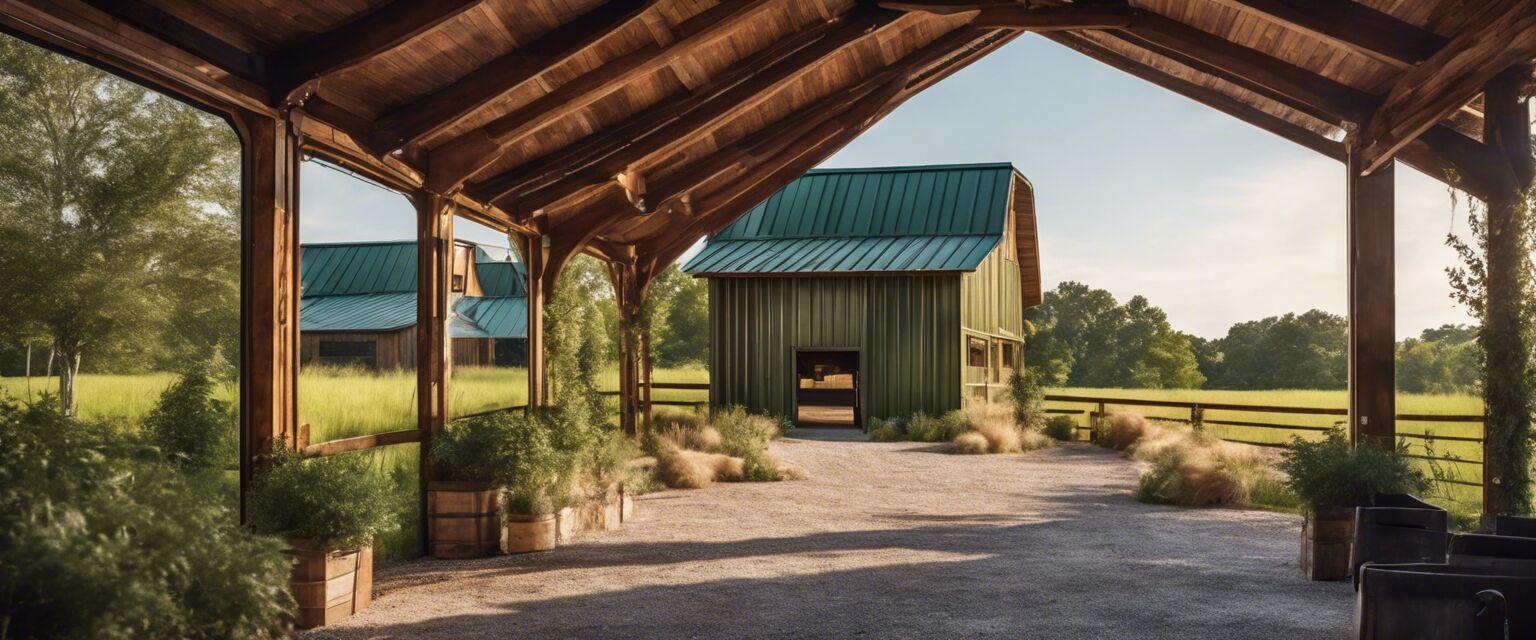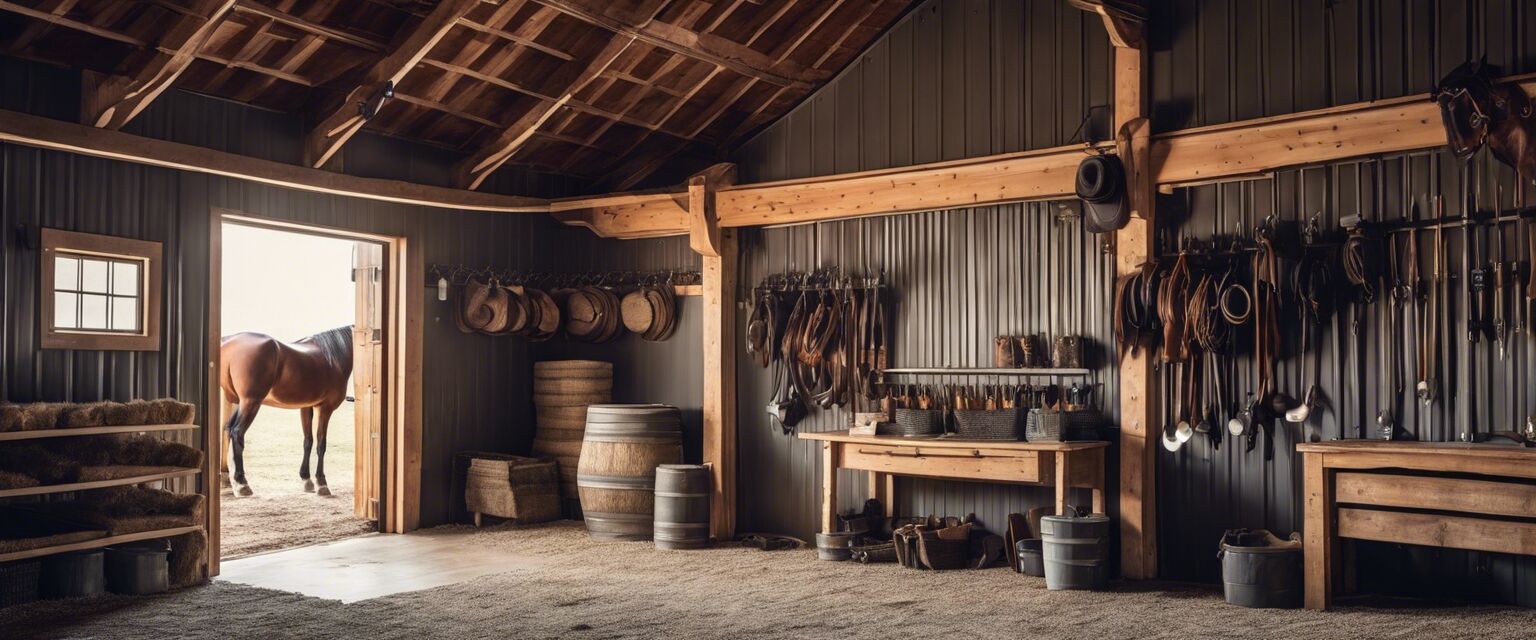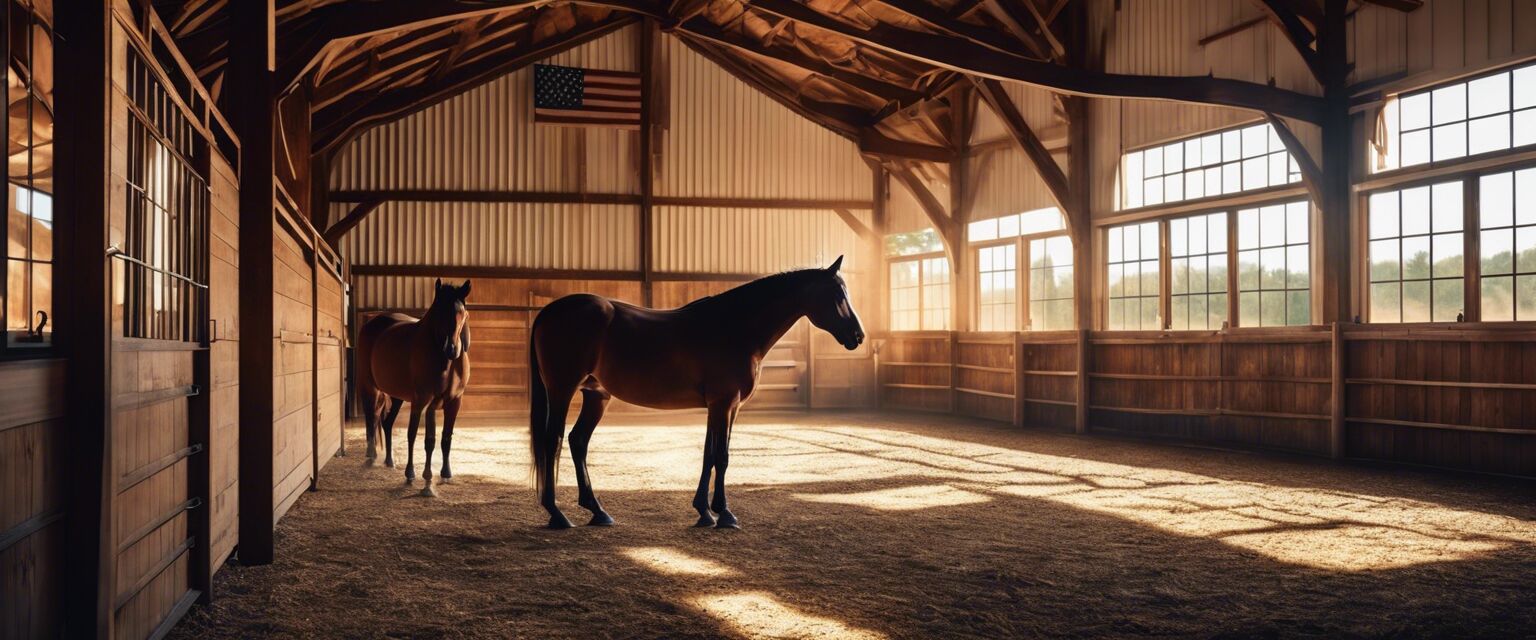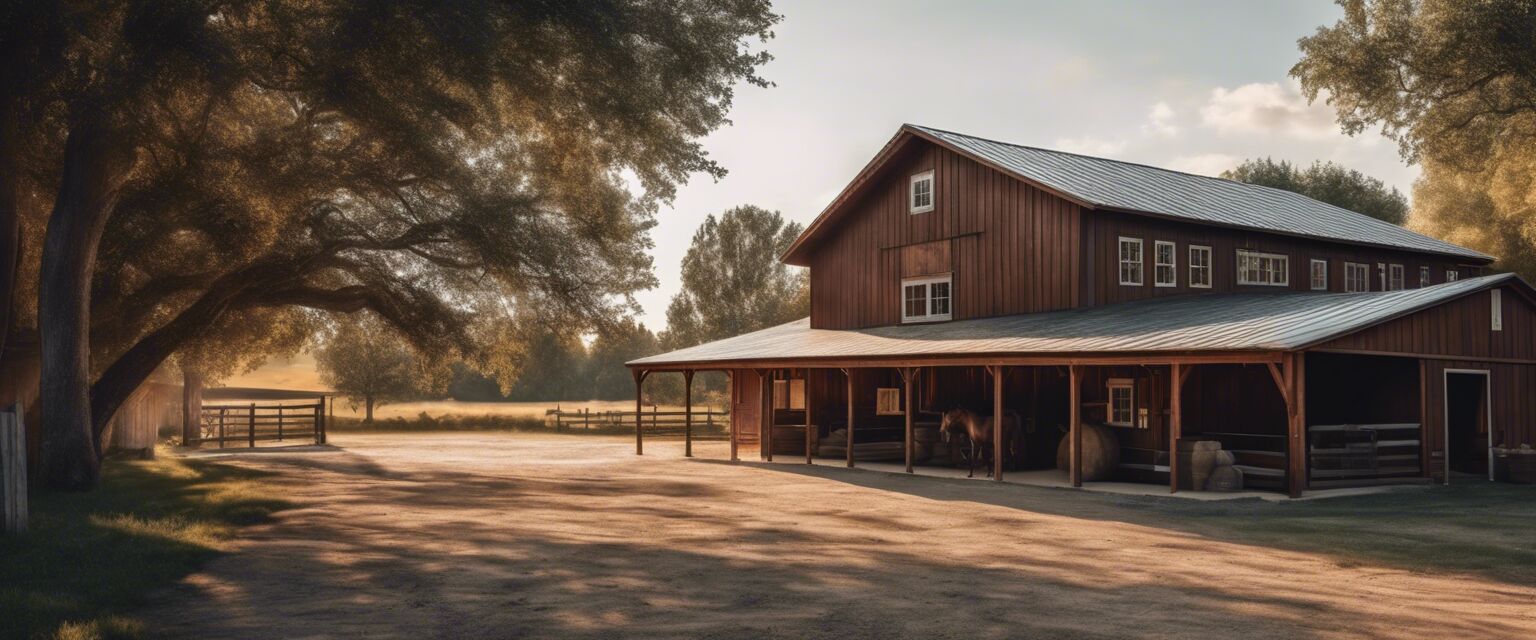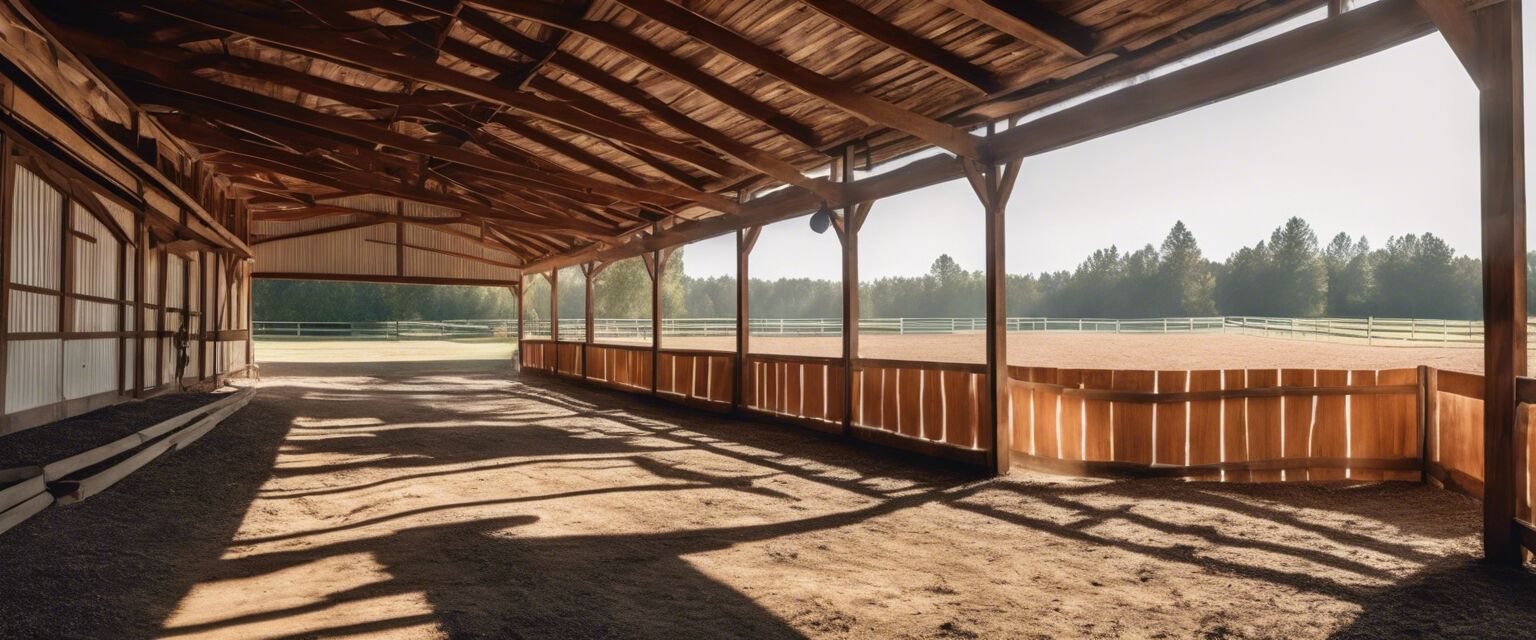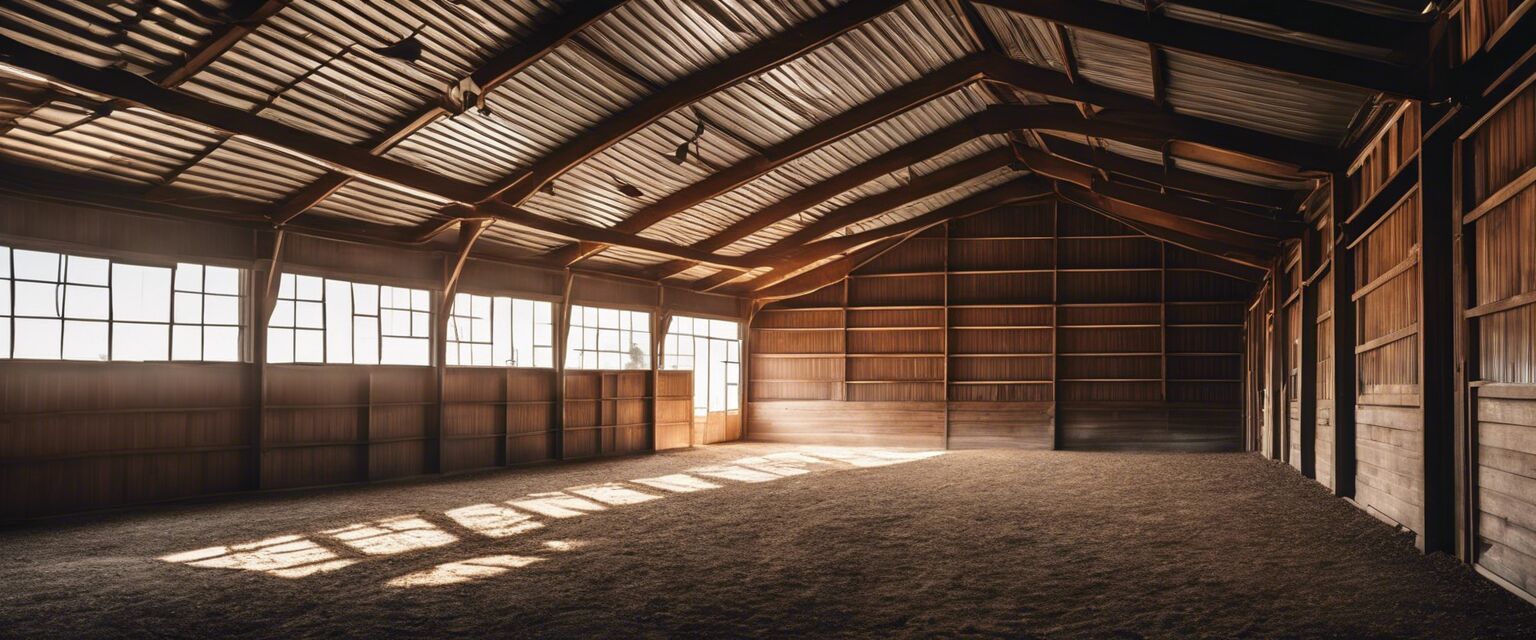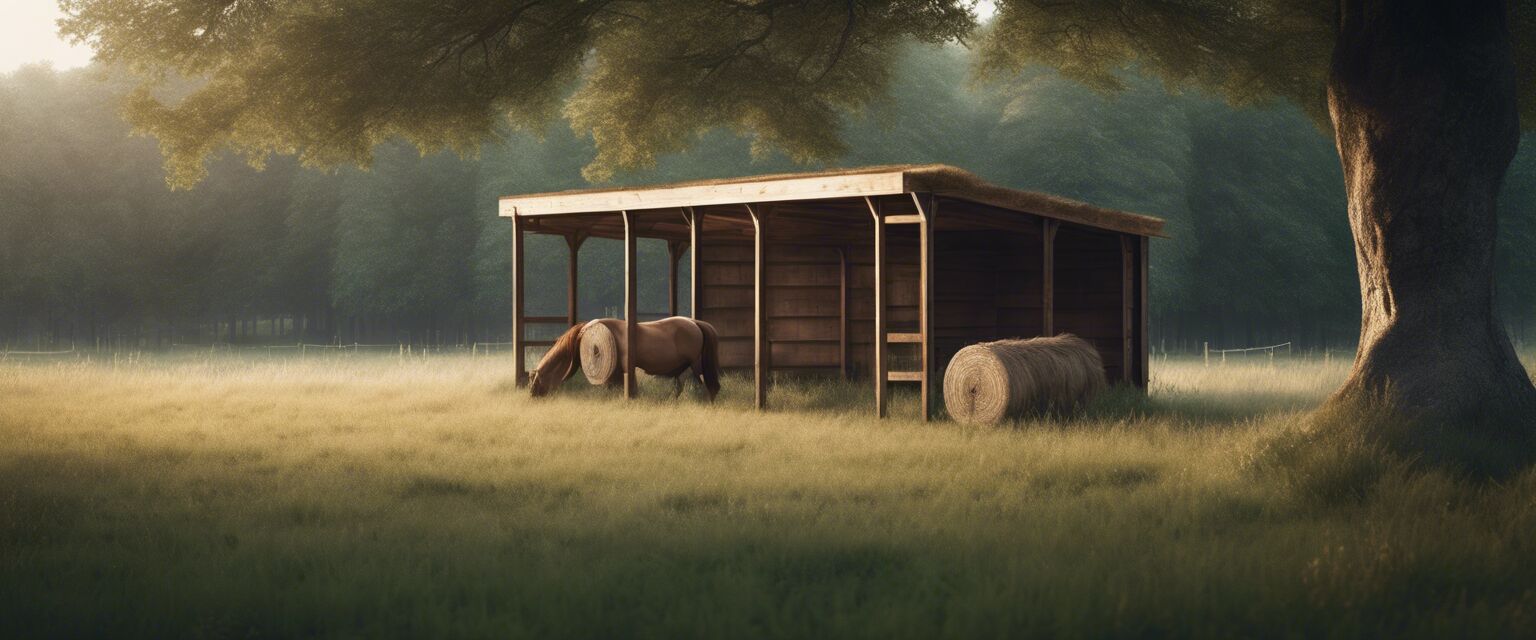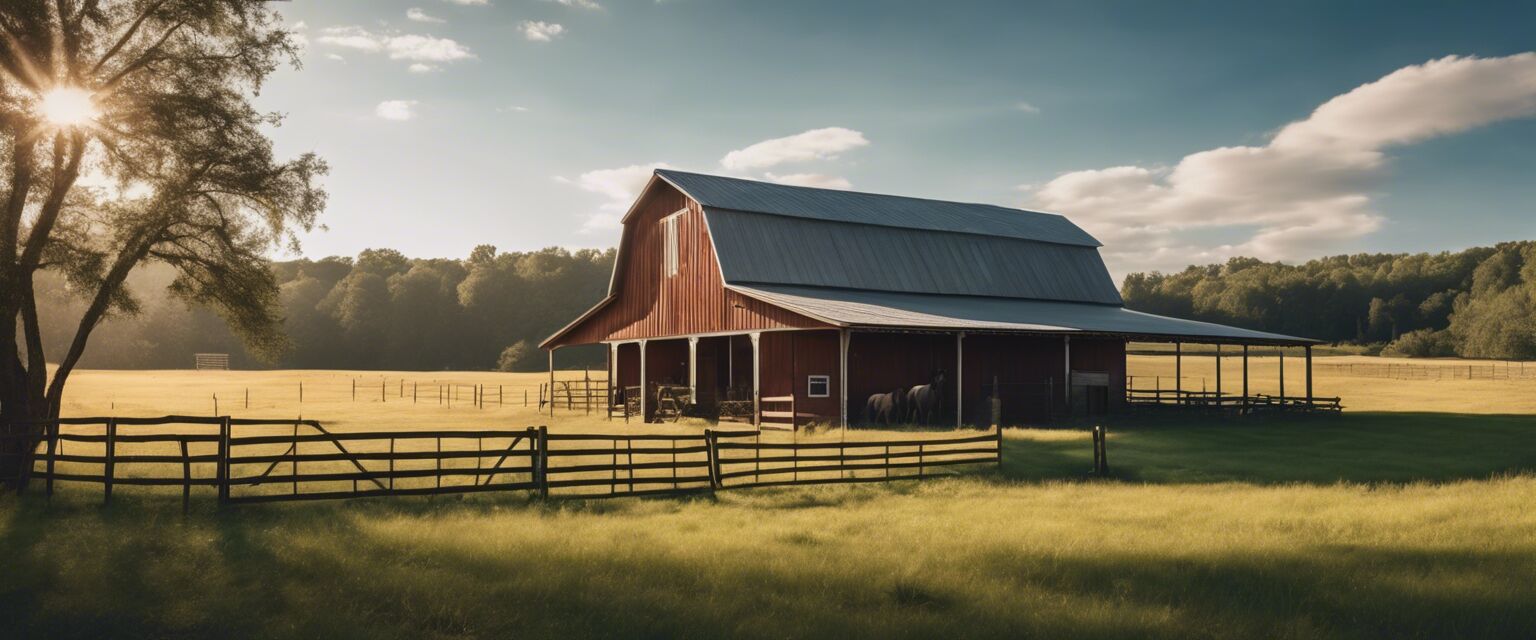
Materials for DIY Horse Barns
Key Takeaways
- Choosing the right materials is crucial for durability and safety.
- Common materials include wood, metal, concrete, and roofing options.
- Consider the climate and environment when selecting materials.
- Proper insulation and ventilation are key to a comfortable barn.
Building a DIY horse barn can be a rewarding project, but selecting the right materials is essential for ensuring the safety and comfort of your horses. In this guide, we will explore various materials you can use for constructing your horse barn, from the structure to the finishing touches. Let's dive into the best options available for your DIY horse barn project.
1. Structural Materials
When it comes to constructing the main structure of your barn, you have several material options:
| Material | Pros | Cons |
|---|---|---|
| Wood | Natural aesthetic, good insulation | Can rot if not treated, requires maintenance |
| Metal | Durable, low maintenance | Can be hot in summer, less insulation |
| Concrete | Strong and stable, fire-resistant | Poor insulation, can crack |
Wood: The Classic Choice
Wood is one of the most popular materials for horse barns due to its aesthetic appeal and good insulation properties. However, it requires regular maintenance to prevent rot and insect damage.

Metal: Modern Durability
Metal barns are gaining popularity for their durability and low maintenance requirements. They can withstand harsh weather conditions but may require additional insulation to keep the interior comfortable.
2. Roofing Materials
The roof is a critical component of your horse barn. It protects your horses from the elements and contributes to the overall structure's durability. Here are common roofing materials:
| Roofing Material | Pros | Cons |
|---|---|---|
| Asphalt shingles | Cost-effective, easy to install | Less durable compared to metal |
| Metal roofing | Long-lasting, fire-resistant | Can be noisy during rain |
| Slate | Very durable, aesthetic appeal | Heavy, expensive |
Choosing the Right Roofing Material
Consider your local climate when selecting roofing materials. Metal roofing, for instance, is ideal for areas with heavy snowfall, while asphalt shingles are more suited for milder climates.
3. Flooring Options
The flooring of your horse barn is just as important as the structure. Here are some options:
| Flooring Type | Pros | Cons |
|---|---|---|
| Concrete | Durable, easy to clean | Hard surface, can be slippery |
| Wood | Natural feel, good traction | Requires maintenance, can rot |
| Rubber mats | Comfortable, good traction | Can be expensive, may need replacement over time |
Understanding Your Flooring Needs
It's essential to consider the comfort and safety of your horses when choosing the flooring material. Rubber mats are an increasingly popular choice for their comfort and traction.

4. Insulation and Ventilation
Proper insulation and ventilation are vital for maintaining a comfortable environment for your horses. Here are some methods to consider:
- Use insulated panels for walls.
- Install vents or windows for airflow.
- Consider ceiling fans to improve air circulation.
Tips for Effective Insulation
Beginner's Tips
- Plan your barn layout for maximum natural light and airflow.
- Choose high-quality insulation materials to ensure energy efficiency.
- Regularly check and maintain ventilation systems to prevent mold growth.
5. Safety and Security Materials
Ensuring the safety and security of your barn is paramount. Here are some materials to consider:
- Sturdy locks and latches on doors.
- Fencing materials to keep horses secure.
- Emergency lighting for safety during power outages.
Enhancing Security
Investing in quality locks and sturdy fencing can greatly enhance the security of your barn. Regularly inspect these features for any wear and tear.
Conclusion
Building a DIY horse barn is a significant undertaking, but with the right materials and planning, you can create a safe and comfortable environment for your horses. Remember to consider the local climate, your budget, and the specific needs of your horses when selecting materials. For more information on barn-related products, check out our other guides on barn building materials, barn décor and comfort, and barn safety and security.
Pros
- Customizable to fit your needs.
- Can save money compared to hiring contractors.
- Provides hands-on experience and satisfaction.
Cons
- Requires time and effort to complete.
- Potential for mistakes if not properly planned.
- May need additional tools and equipment.
